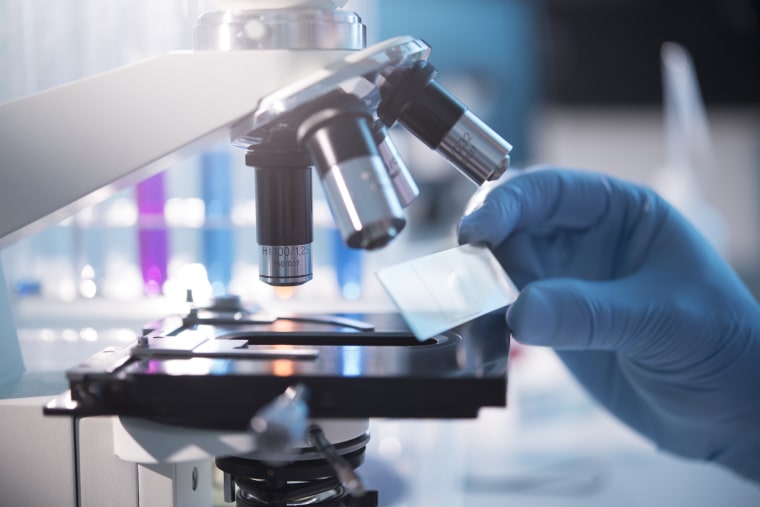The Trump administration created a federal ethics advisory board to evaluate research involving fetal tissue. As the New York Times reported, the result was predictable.
A new federal ethics advisory board created to evaluate scientific research involving fetal tissue has advised the Trump administration to reject funding for nearly every proposal it considered -- a de facto government ban on the work. In a report issued on Tuesday, the Human Fetal Tissue Research Ethics Advisory Board, established in February by the Department of Health and Human Services, recommended against funding 13 of 14 research proposals. Health Secretary Alex M. Azar II will make the final decision, but the panel's opinion is expected to hold great weight.
Two members of the group issued an unsigned dissent, explaining that the fix was in. "This board was clearly constituted ... so as to include a large majority of members who are on the public record as being opposed to human fetal tissue research of any type," they said. "This was clearly an attempt to block funding of as many contracts and grants as possible."
Circling back to our earlier coverage, one of the elements of the fight that's so exasperating is the extent to which fetal-tissue research hasn't been much of a political issue in recent decades. There was, by and large, a political consensus that there are no medical or scientific reasons to curtail the area of study.
After an abortion, fetal tissue can either be discarded or used in potentially life-saving medical research. Reproductive rights can be a contentious issue for a variety of reasons, but this facet of the debate seems uncomplicated. (It's worth emphasizing that some tissue used in research comes from fetuses that were not intentionally aborted.)
It's precisely why support for fetal-tissue research has been broad and bipartisan for many years. When Congress passed a law authorizing the research in 1993, the vote in the Senate was 93 to 4.
But then Donald Trump took office and took the research in a regressive direction, ending fetal-tissue research within the National Institutes of Health and scrapping research contracts.
It's a tough position to defend for all sorts of reasons, but reading about the latest developments, I'm reminded of this Washington Post report from March:
A senior scientist at a government biomedical research laboratory has been thwarted in his efforts to conduct experiments on possible treatments for the new coronavirus because of the Trump administration's restrictions on research with human fetal tissue. The scientist, Kim Hasenkrug, an immunologist at the National Institutes of Health's Rocky Mountain Laboratories in Montana, has been appealing for nearly a month to top NIH officials, arguing that the pandemic warrants an exemption to a ban imposed last year prohibiting government researchers from using tissue from abortions in their work.
The article quoted Irving Weissman, a leading stem cell researcher at Stanford University, who explained that the NIH's Hasenkrug "is one of the world experts in immune responses to persistent viral infection," and though we don't know whether his line of inquiry would help address the coronavirus crisis, "it's stupid not to try."
My point isn't that fetal-tissue research would necessarily lead to breakthroughs in dealing with COVID-19. Rather, what matters is that the research might be able to help, but Donald Trump and his team have closed off the avenue for no reason, other than to satisfy the misguided demands of the far-right base.

